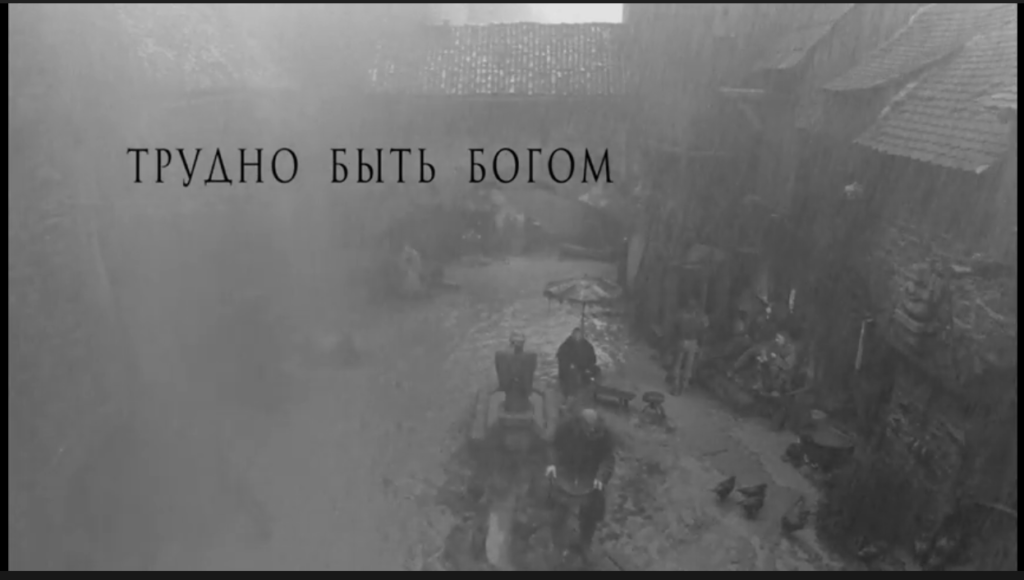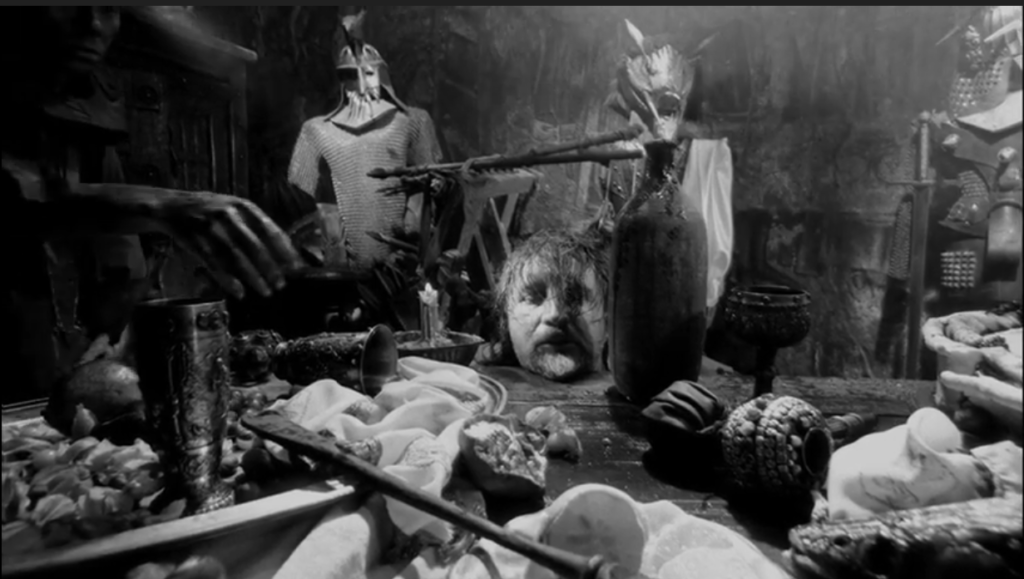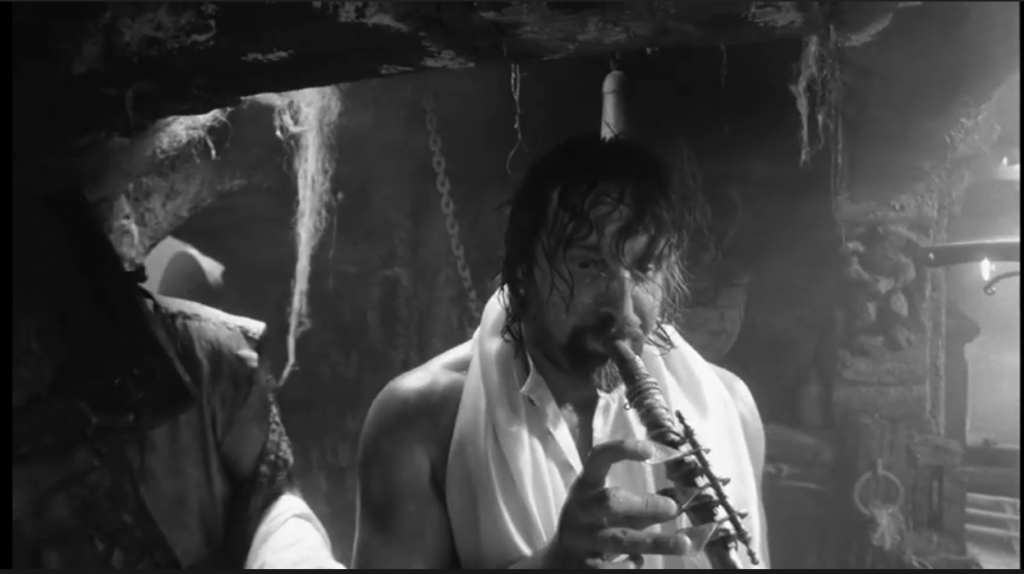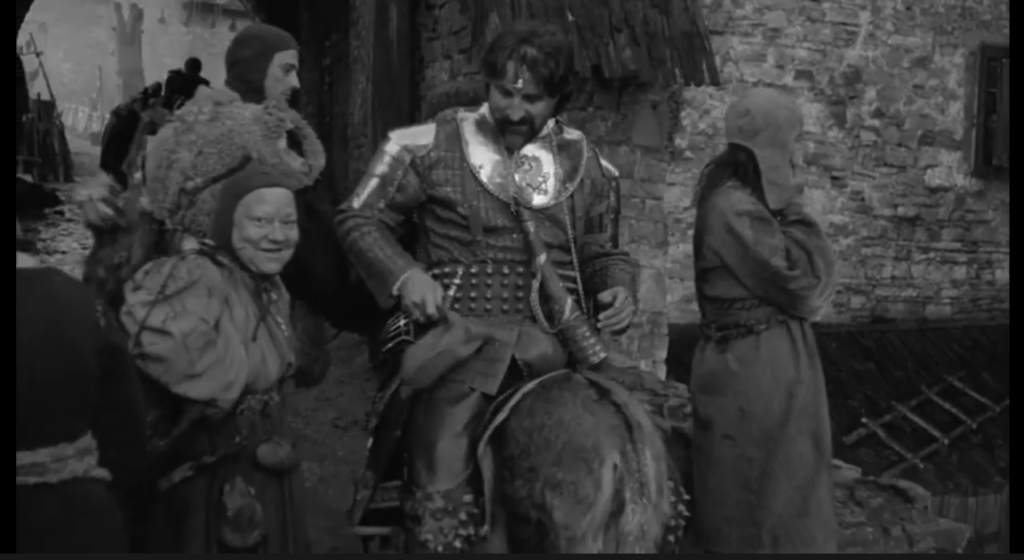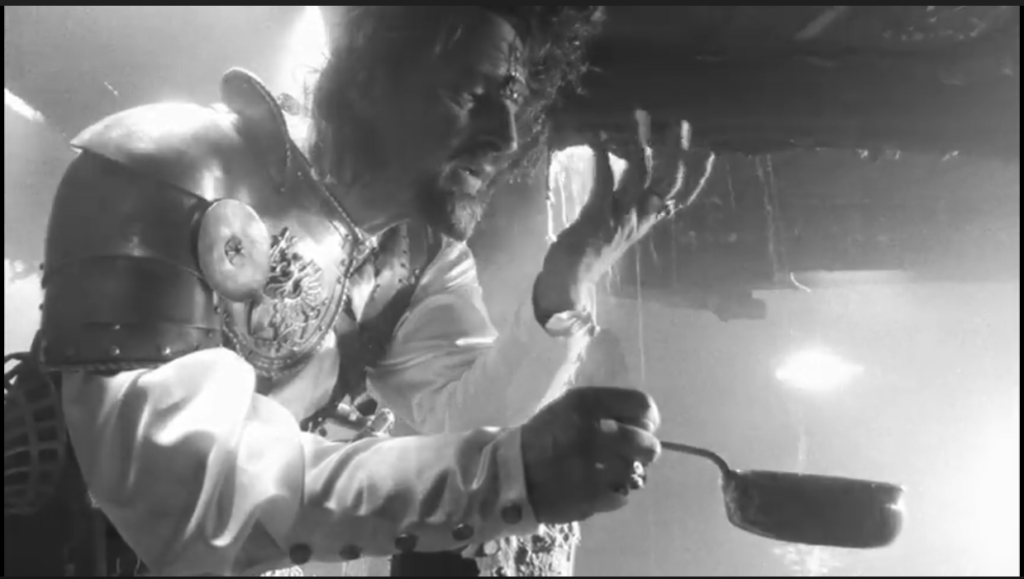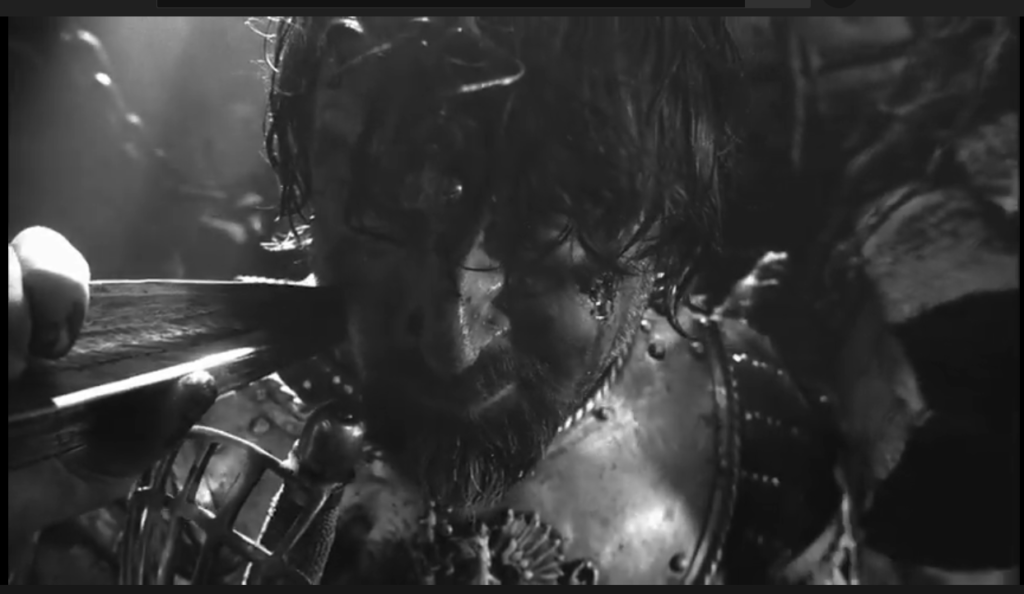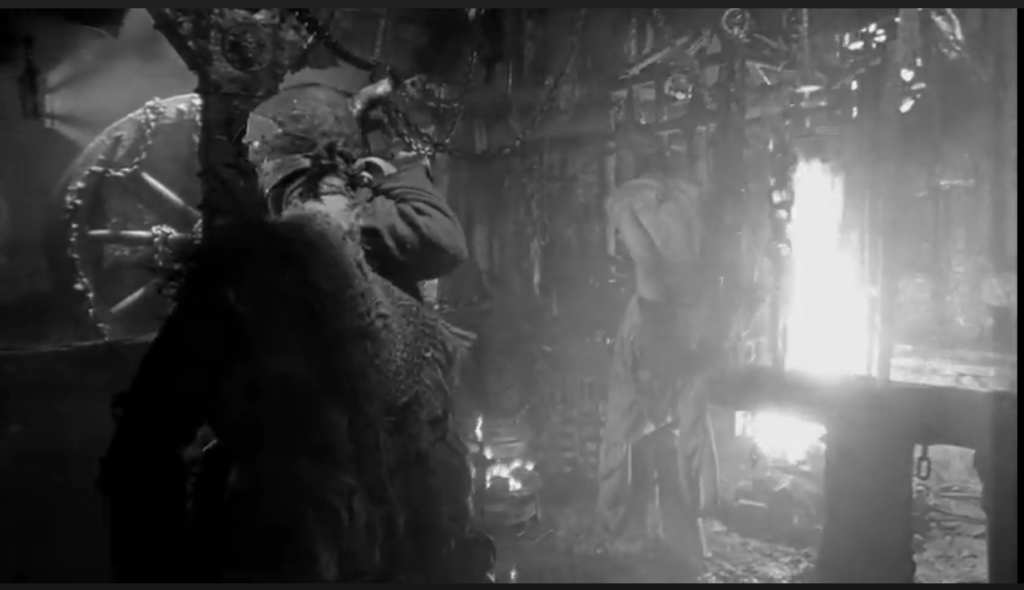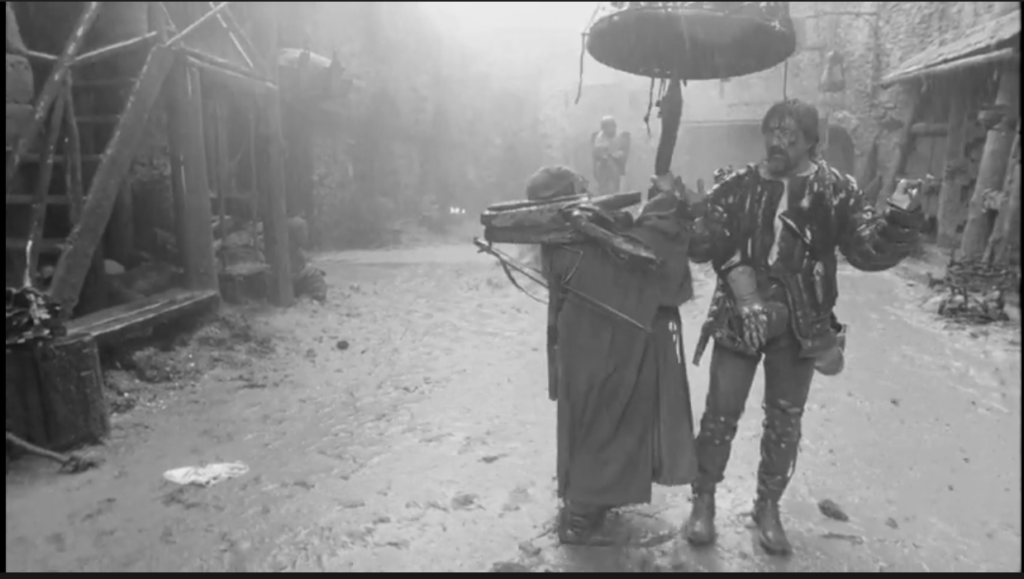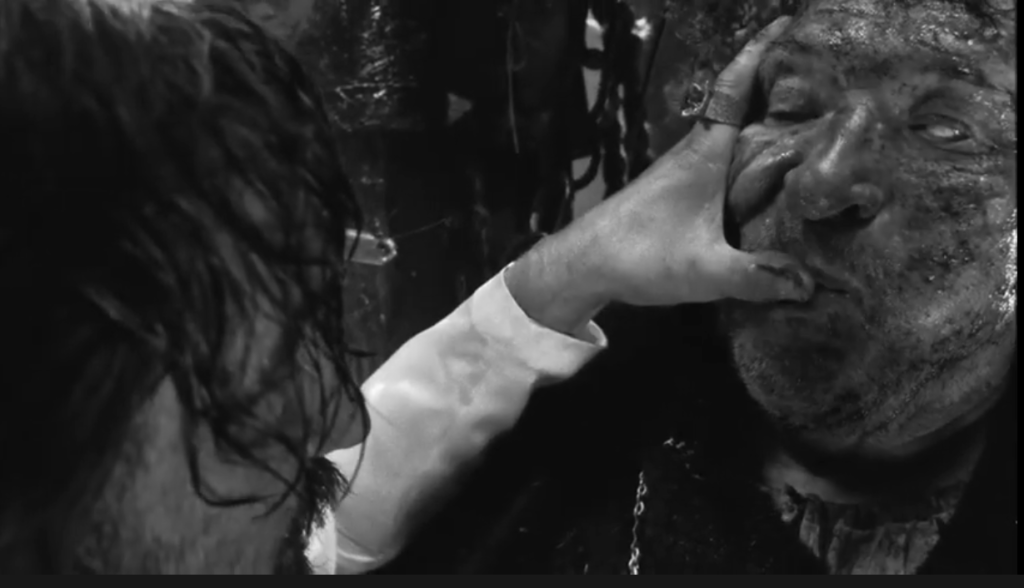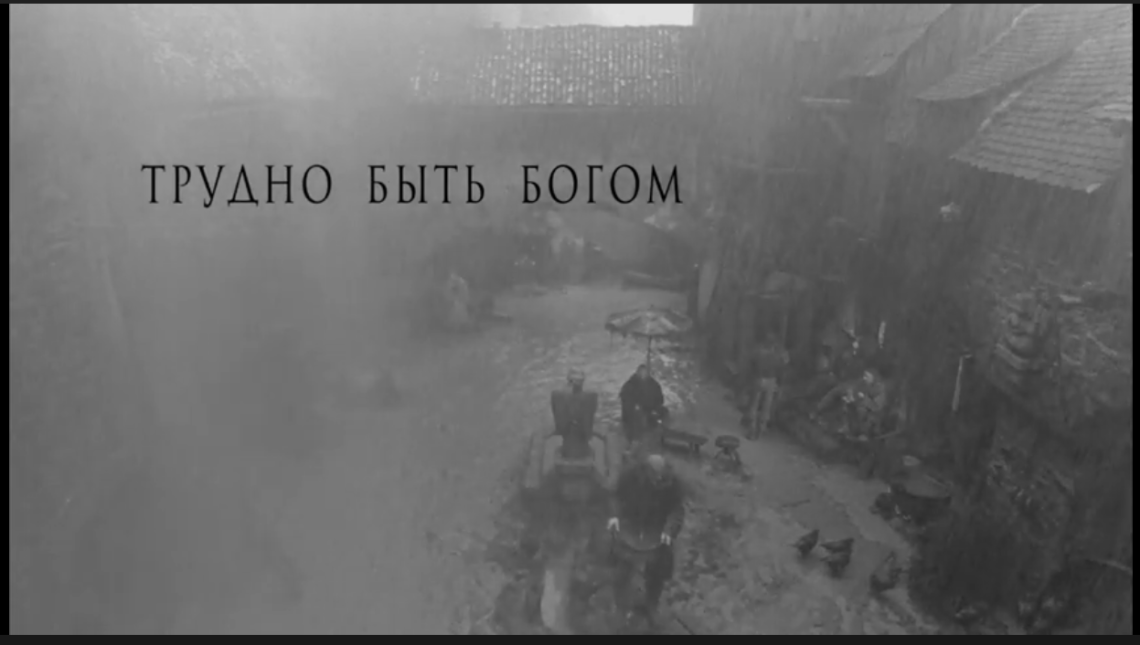
#480 – Hard to be a God (2013)
Hard to be a God (2013)
Film review #480
Director: Aleksei German
SYNOPSIS: On another planet, the civilisation there is undergoing a period of time similar to the Earth’s Middle Ages. However, this civilisation has not undergone a Renaissance period, and those intellectuals, scholars and artists that would bring it about are mercilessly hunted down by the Order, who rule over the people. A group of Earth’s scientists are sent to the city of Arkanar on the planet to observe how this civilisation develops, with orders to not interfere with the society and to keep their mission secret.
THOUGHTS/ANALYSIS: Hard to be a God is a 2013 Russian sci-fi epic, based on the 1964 novel of the same name. The film centres around the city of Arkanar on an alien planet, where a Middle Ages civilisation is diverging from Earth’s history, and any attempts at a Renaissance-era is being snuffed out by the ruling Order, which is arresting scholars, intellectuals and artists that may bring this new era about. A group of scientists from Earth are sent to observe this society with orders not to interfere or kill anyone (very Star Trek prime directive, although the original novel came out a year or two before the original TV series). One scientist has taken the guise of Don Rumata, who claims to be the son of a local God, and smuggles the intellectuals that the Order are hunting safely out of the city. The story of the film is…a bit difficult to follow, but at the same time, there isn’t too much to follow. There’s the elements of the Earth scientists, which doesn’t really influence the plot; partly by design, as they are not allowed to interfere. Also the setting of the medieval town itself does not lend itself to a cohesive narrative, with swathes of people just trying to survive amid the filth and fear they are living through, gives the film little direction. This again, however, is by design, as the film really hinges on being able to portray the mess of medieval society, unguided by the scholars and artists. The film definitely echoes the old Soviet Union epics, particularly Tarkovsky’s Andrei Rublev, also filmed in black and white. At nearly three hours, it is definitely an endurance piece, and without that direction that a definite story would typically give a film, the viewer becomes increasingly pulled into the mire of this society, which is obviously the film’s objective. It’s definitely not for everyone, but the film clearly has a very specific ambition and vision, and for the most part, it fulfils said vision with notice effort being poured into all aspects of it.
What makes this film stand out is how the setting is brought to life: this medieval city is absolutely covered in filth and dirt: the people wade through mud everywhere they go, their faces smeared with dirt and blood, and an absurd amount of corpses and entrails hang from the ceilings and adorn the sides of the pathways. Every shot feels like it is considered and thought through: the shot is often obscured with detritus, or extras moving across the camera, constantly giving the impression of everything being claustrophobic, and it being impossible to avoid the filth of the film. Most scenes are long single takes, which must have taken considerable effort to pull off, especially considering the aforementioned amount of extras and objects the camera moves through. The only critique I would say in this respect is that sometimes the camera moves awkwardly through the scenes, but again, given how much is going on, it’s a technical achievement that this only happens very rarely. The film isn’t particularly gory, but instead focuses on this dirt and unhygienic conditions that immerse the viewer as any everyday occurrence, rather than moments of shock and violence. There are a few particularly gory parts, such as when we see someone’s eye ripped out (from behind their head anyway), and an open chest with a still beating heart in it, but these are few and far between: the choice of the film being black and white also somewhat mutes the gore, but in these particular scenes, it becomes incredibly visceral, even without the colour.
As mentioned, the story is almost lost amidst the immersion of the visuals: there’s so much going on visually and viscerally that following what the characters are saying and doing is very much a secondary concern. There’s no traditional sci-fi metaphor or influence either, other than we are told these scientists came from Earth on an observation mission. I suppose elaborating on these elements would detract from the vision of the film becoming immersed in this society. Reviews on this film typically praise the vision and ambition of the film’s production, but is much more divisive with regards to how it tells its story, and also how it portrays the Middle Ages; which certainly wasn’t devoid of scholars, art and beauty, but also definitely wasn’t the easiest of time to live through. I would generally agree with the consensus: that Hard to be a God is a film that aims to immerse its viewers into a dark, filthy and harsh world, and succeeds in doing so. Whether that is enough to immerse all viewers with a minimal story that is difficult to follow sometimes is another matter, but I think it succeeds in doing what it set out to do. If you like your epic art films, you’ll get something out of it; if you don’t, you might not last the whole three hours.


